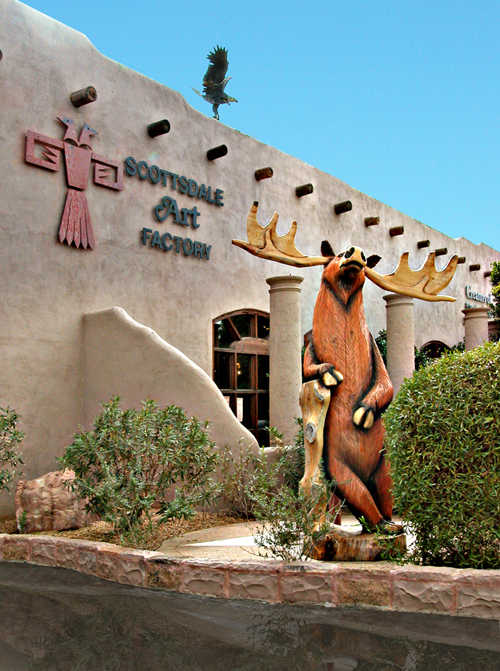Green Planet

ArtFactory.com Is Green Planet Friendly.
We never use living trees that are felled for the purpose of manufacturing. All of our wood comes from trees that are considered destroyed by natural causes such as fires, storms or natural infestations. We salvage from nature and use every part of the northern cedar tree.
Libocedrus decurrens Torr. No Trees Are Cut For Our Products
Click Above And See How We consider these natural imperfections artistic and interesting. Further, we have no waste products that add to the world’s landfills. The last cuts of all of our wood are used to build bird houses, feeders and other garden items and sold with most of these proceeds donated to green planet non-profit organizations. Also, ArtFactory.com uses these projects to help train the next generation of master craftsman. Since most of our wood is North-woods American cedar, we chip what is left to be used as walk ways, road beds and garden cedar chips. The saw dust is all that is left and this is then put back to mulch the forest floor. When you purchase a entry system, or windows from ArtFactory.com you are choosing the most energy saving thermal effective door or window available in the world. We have always been earth friendly and all our finishes are water based and ecology correct.
This Hand Carved Moose Is another example of how we can take from the natural woods what mother nature is finished with ( a fallen tree from wind or natural erosion ) and create something of value. Enjoy,celebrate nature and not destroy our planet.

Woodland Chic Headquarters

Incense-cedar (Libocedrus decurrens) is the only species from the small genus Libocedrus that is native to the United States. Increasingly, it is placed in a segregate genus Calocedrus. Incense-cedar grows with several conifer species on a variety of soils, generally on western slopes where summer conditions are dry. It is long-lived and grows slowly. Most of the top-grade lumber is used for the manufacture of high end furniture, doors, exterior beams, structural post, fence post and the rest is made in to pencils and exterior siding and roofing materials.
Habitat Native Range
Incense-cedar is a distinctive component of the Sierra Nevada mixed-conifer forest, where it grows as scattered individuals or in small groups . Its range spans about 15ÃÆéâ¬Å¡Ãâð of latitude and a variety of climates from the southern slope of Mount Hood in Oregon, southward through the Siskiyou, Klamath, and Warner Mountains, Cascade and Coast Ranges, and Sierra Nevada to the dry Hanson Laguna and Sierra de San Pedro Martir Ranges in Baja California . Incense-cedar grows from the coastal fog belt eastward to the desert fringes. It can be found in the Washoe Mountains of west-central Nevada.

Conservation: It’s Earth’s Best Defense!
Have you ever wondered how much water and energy your family uses each day? Conserving Earth’s natural resources means knowing your ecological footprint ” the impact your lifestyle has on the planet ” and how to minimize it. Saving energy is a great way to conserve the earth while keeping utility bills low. Start by doing an “energy audit” of your home. Identify power wasters such as drafty windows, leaving lights on, and keeping appliances on standby. Here are some conservation tips for the whole family to practice at home, in the yard or on the go:
Set the thermostat to 65 degrees in winter. Turn the air conditioning to low in summer. Switch from incandescent to fluorescent light bulbs. Unplug cell phone chargers when not in use. Be sure to post your tips in a central place so the whole family can read them.
Be Water Wise. Using water wisely is one of the best ways to protect our planet. Even young children can follow simple steps for minimizing water waste, like turning off the tap while brushing their teeth and taking shorter showers. Another easy way to save water is to put a bucket in the bathroom for collecting tap water while it heats up. Then, use it to water the plants or wash the dog.
Go Shopping and Go Green! Buying eco-friendly products not only protects the environment, it also sends a message to companies that being green is important to customers. Whenever your family goes shopping, make a game of searching for products made from recycled materials and those that are made without the use of dyes, perfumes, harsh detergents or other chemicals. Also, be sure to buy products that you know you can recycle.
Backyard Conservation: There are many simple things your family can do to protect the planet and still have a fantastic yard and garden. For example: Water the lawn in the early morning rather than at midday ” this allows grass to absorb more moisture. Plant shade trees around the house to keep your home cool and cut down on the need for air conditioning. Use native species in your garden ” natives are adapted to the soil and climate of their local environment, so they need less water and maintenance. Weed your garden rather than use pesticides ” it’s healthier for your family and for the environment. Mulch your grass clippings.
Spare the Air. Air pollution is a threat to both people and wildlife. Teach your family to conserve their world by following these clean air tips: Don’t use aerosol products such as hair spray, cooking spray, air freshener or furniture polish. Use push lawn mowers and avoid using electric snow and leaf blowers. For painting projects, use water-based paints. Buy environmentally friendly cleaning products.
Transportation Tips. Go for a walk or take a family bike ride rather than drive to nearby places. Organize your family’s errands to minimize driving. If you drive, use a fuel-efficient vehicle.
Conservation on Vacation. The next time your family goes on vacation, consider an ecotourism destination. These are places that offer educational programs and nature activities while protecting the environment and the animals that live there. You can also minimize your impact on the landscape by following these simple tips on vacation: Only use recreational boats with clean-burning engines and never allow gasoline to spill into waterways. Don’t use Jet Skis, snowmobiles or all-terrain vehicles ” they pollute and disturb fragile ecosystems. If you go diving on coral reefs, be careful not to touch or step on coral.
Entertain These Tips! Many people leave their computers, stereos, DVD players and televisions running 24/7 for the sake of convenience or because they think not turning equipment off and on will save energy. The truth is that using electronics and home entertainment systems takes a lot of energy. Be sure to turn off computers or leave them in sleep mode when you’re not using them and turn off the television when you’re not watching it.
Following these simple steps can go a long way toward conserving Earth’s wild places and natural resources. Also, talk to your family about local and global conservation issues and find out what you can do to make a difference.


